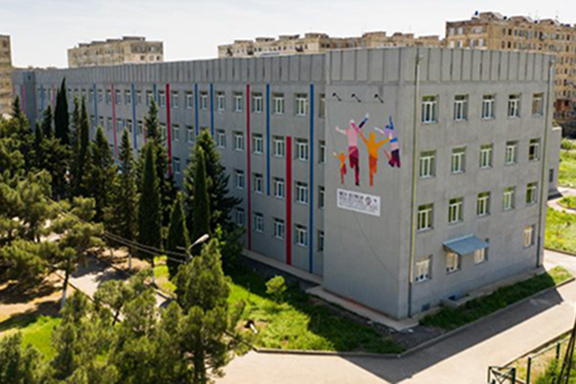And what is Armenia’s government going to do about it?
BY GARO MADENLIAN
We all understand the limitless promise of our young republic and especially the creative power of our youth–irrespective of ruling parties or coalitions, elections, debates and never-ending power-struggles.
We also see the grinding poverty still facing our ancient nation as it continues to improve, survive and thrive in the face of imminent danger and ongoing blockade by its neighbors to the east and west, where large portions of our historical Armenian homeland remains occupied.
Amidst this difficult geopolitical environment, we collectively acknowledge our greatest asset, and best hope, for a prosperous country is our youth. Because of this, we know that cultivating our next generation is one of our very top priorities. Developing and directing the vast energy and potential of our youth is the key to the well-educated and highly-skilled workforce that will take Armenia to the next level.
We desperately need investments in cutting-edge, world-beating education – the type of instruction and inspiration that arms our boys and girls with the skills to compete in tomorrow’s high-stakes marketplace. If we aspire to an Armenia that’s more than a museum – a tourist destination – we need major infusions of resources to drive Armenia’s progress as an incubator of innovation, a global IT hub for our vast and growing Diasporan economic network, and an international center for commerce and cooperation.
Armenia was – until very recently – powerfully positioned for a major Millennium Challenge Corporation grant for IT education, in the hundreds of millions of dollars, a potentially game-changing allocation of direct U.S. funding for instruction in information technology in schools across Armenia. MCC is an independent U.S. foreign assistance agency created by Congress in 2004 with strong bipartisan support that is helping lead the fight against global poverty. It provides time-limited grants (not loans) promoting economic growth, reducing poverty, and strengthening institutions including education. Learn more here.
MCC has projects throughout the world and in various sectors such as agriculture, education, energy, health, land and property rights, road and transportation, and sanitation and irrigation (https://www.mcc.gov/sectors), all of which are very important. For Armenia’s future, an education sector grant – like the $140 million STEM grant given to the Republic of Georgia in 2013 would be truly game changing. As proof of concept, we can look at the successes of similar grants in Namibia, Cote d’Ivoire, Mongolia, Morrocco, and El Salvador which fundamentally transformed their educational systems, giving their students advantages and providing huge benefits to their respective economies. Learn more here.
Why then hasn’t Armenia received a similar grant to catapult her schools into the future? It’s not because Armenia’s undeserving, or that there’s no need, or that Armenia lacks support.
On the contrary, Armenia meets and exceeds nearly every good governance standard set by the MCC, whose stated aim is to alleviate poverty. There is, sadly, far too much poverty in Armenia. Armenia is also blessed to have a strong Diaspora in America – where prominent groups like the Armenian National Committee of America and their many friends in Congress have strongly backed securing an education-based MCC grant for Armenia dating back to 2016.
The real reason Armenia has not received a major MCC grant for education purposes is that the World Bank (whose main goal is also reducing poverty) suddenly reclassified Armenia as barely meeting its threshold for an “upper middle-income country,” making it ineligible for MCC funding. They grouped Armenia with far wealthier countries like Brazil, Lebanon, Russia, and Turkey. By this standard, Armenia is now just one level below “high income” nations, like Denmark, Germany, and the United States.
This reclassification is absolutely ridiculous!
The government of Armenia must step up its game, leveraging its status as a member of the World Bank to correct this error and right the wrong to secure this grant for its own future.
Armenia can, for example, challenge the World Bank determination of its income status, formally request the World Bank change its income status, officially ask for the raw data World Bank economists used to make this unfair determination, use its own data and economists to present accurate numbers. Or, Armenia could, on a more human level, simply invite the President of the World Bank to visit actual villages in Armenia.
With the future of our kids at stake, we should demand nothing less than honesty and transparency from the World Bank, and for the Armenian government to take the initiative and act on behalf of its youth and our common future by aggressively fighting for a major infusion of funds for Armenia’s public schools.
The Republic of Georgia’s STEM focused MCC compact valued at $140 million in grant funding began on July 26, 2013 and closed on July 1, 2019. According to the MCC these U.S. funds were successfully used to “fully rehabilitate 91 public schools, benefiting more than 37,000 Georgian schoolchildren. In addition, 15,000 secondary STEM and English teachers, 1,800 principals and 1,400 school-based professional development facilitators received training to improve their instructional skills and management capacity. The compact also equipped more than 1.7 million Georgians with better education and training, increasing workforce capacity in fields critical for economic growth, with a particular focus on science, technology, engineering and math (STEM) fields,” according to the MCC.
Armenia’s public school students and educators especially those mired in poverty deserve the same boost that America gave to public school students and educators in Georgia and many other countries.
Let’s work together and get this done!




















































